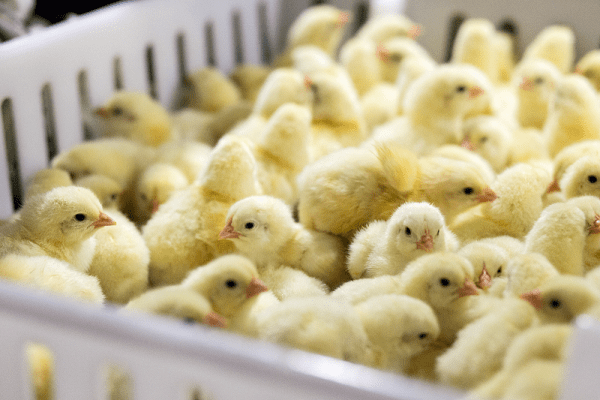The South African poultry industry has growth opportunities for new entrepreneurs and small-scale farmers, so now might be the best time to enter the industry, but you’re going to need at least R20,000 to 50,000 to start a profitable business – depending on how big or small you’re starting.
According to Dr Nkhane Baldwin Nengovhela of the Department of Agriculture, Land Reform and Rural Development, the poultry industry has a lot of room for growth and so young people are being encouraged to take advantage of the business opportunities it presents.
“The poultry industry is one of the most advanced sectors in terms of farming in the world. I think all young people should consider it for farming. If you think of something called biotechnology, you can’t think of anything (other) than a day-old chick that is raised for meat, or a layer that is raised to be able to lay an egg,” he said in a virtual poultry masterclass webinar last week. For those who are interested in starting a small-scale chicken farm, the first step is to identify which part of the industry they want to grow in. One can either grow day-old chicks to sell them to other farmers or, you could hatch eggs and sell them to large companies and other aspiring small farms. Some small-scale farmers that have been in the industry for over a decade do both.
Gladys Momubaghan, owner of Peezel Farm has been in the industry for 11 years, and on her farm she does it all. Momubaghan and Lindokuhle Mtyoki, who started his poultry farm with 100 chicks in the Eastern Cape last year, share tips on the cost and knowledge needed to start a flourishing poultry business.
“The poultry industry is a numbers game”, said Momubaghan. “The more you have, the more profit you make. So start small with what you have.” In order to keep chickens for farming purposes, you first need to familiarise yourself with animal keeping bylaws in your local municipality. These give guidelines as to where your farm can be situated, the maintenance of animals, and other regulations.
Once that is sorted and out of the way, you need to build a structure for your chickens. According to Momubaghan, a zinc structure is the best option. For 500 chicks she says, a zinc structure will cost you between R16,000 to R20,000.
Mtyoki, on the other hand, opted for a brick structure which set him back R45,000 to build. But he also suggests that zinc is cheaper. You need to know which market you are catering for. The broiler market – chickens for meat – or the layer market – these are chickens that lay eggs.
Depending on where you are in the country, a box of 100 day-old chicks will cost you between R850 to R950. If you’re buying 500 chicks from Momubaghan – who hatches her own – you’d need R4,200.
The cost to grow a chick to a point of sale varies from place to place. According to both Momubaghan and Mtyoki, growing a day-old chick to broiler point of sale (from 40 –45 grams to 2.2 kilograms) will cost you about R38 to R40.
“Feed is so expensive, and a lot of people are thinking of making their own, which is not easy,” cautioned Momubaghan. She said it is important to note that chicken do not just eat anything.
“We have the starter, the broiler starter, broiler grower, broiler finisher. Around Pretoria, it ranges between R300 to R350.
“They don’t eat one thing throughout. They start with the one that gets their digestive system started. The grower which helps them grow faster, and then the finisher which gives them weight and meat,” she said. In terms of price, Momubaghan said the starter costs about R350, the grower about R320, and the finisher about R300 for a bag.
The poultry is fed on a two-week schedule. If you are growing them for a period of 42 days or six weeks, then it’s two weeks for the starter, two weeks for the grower, and two weeks on the finisher. According to Mtyoki, big corporations such as Rainbow chicken are at an advantage because they buy in bulk and therefore get a huge discount. This is not possible for small-scale farmers, and that’s why they end up paying more for feed.
On the first day of hatching, chicks need to get vaccinated. It is then the responsibility of the new owner to ensure that they get all the other vaccines and antibiotics they need as they grow. According to Momubaghan, there are about four vaccinations for the broilers and six for the layers.
It costs R120 to buy vaccines for 1,000 chickens. When you start small, you have to be disciplined. Do not shy away from formal training, no matter how big or small. “Take every opportunity to learn,” said Momubaghan.



